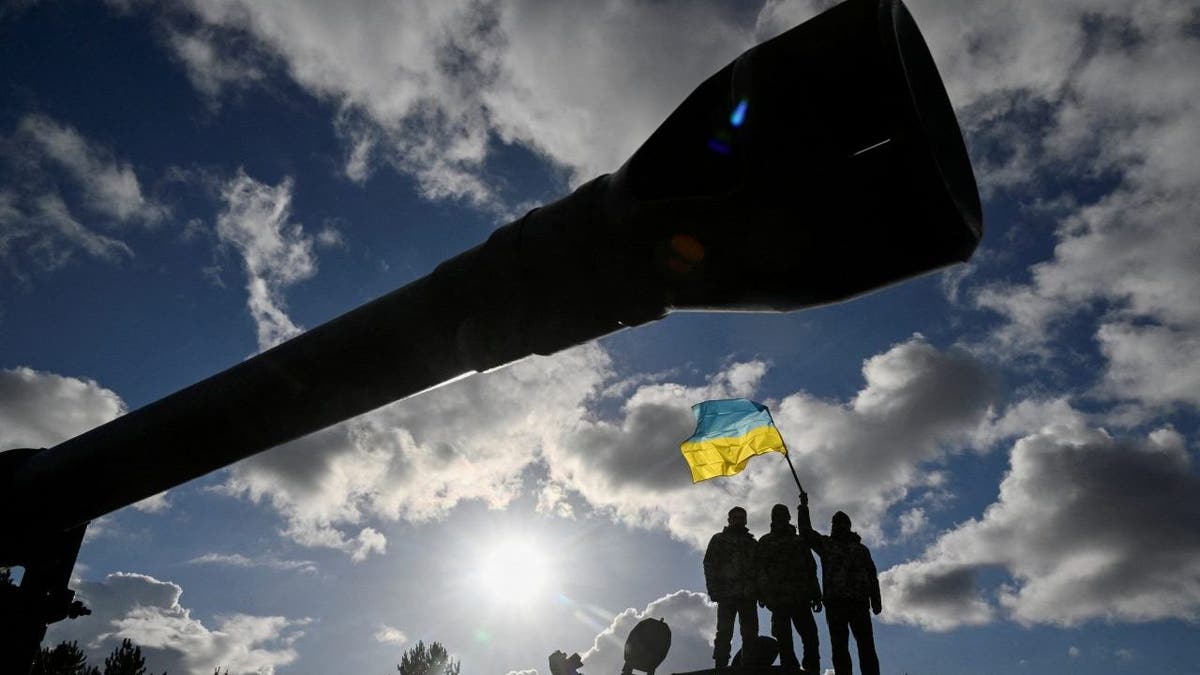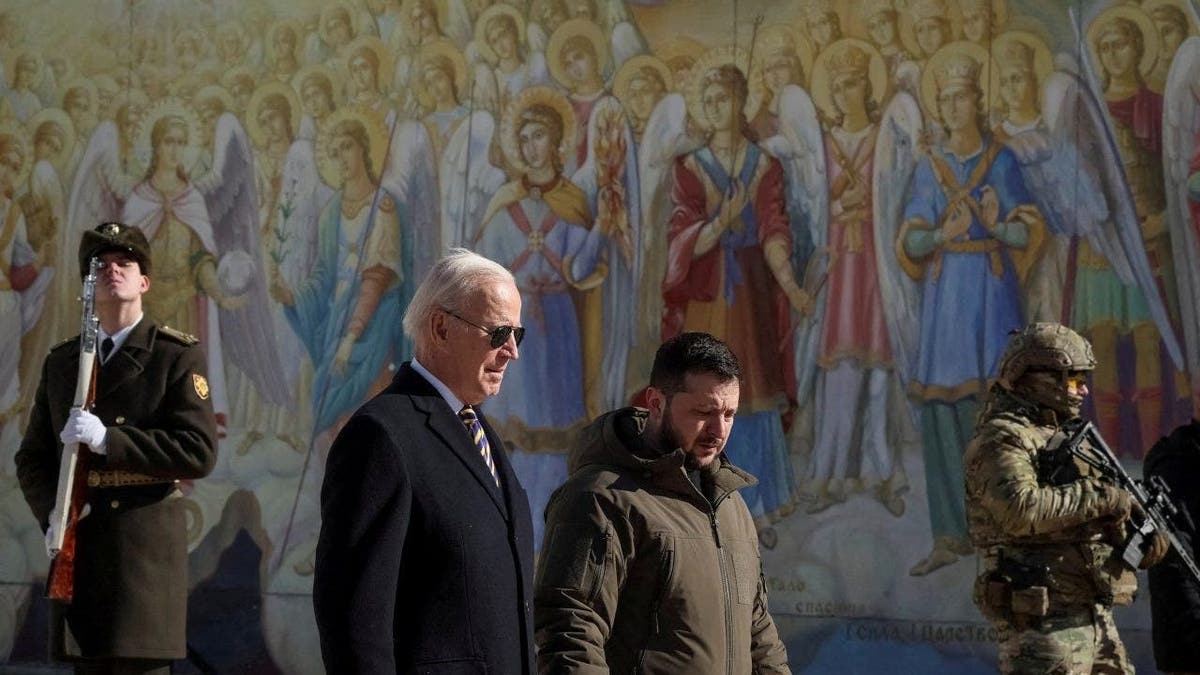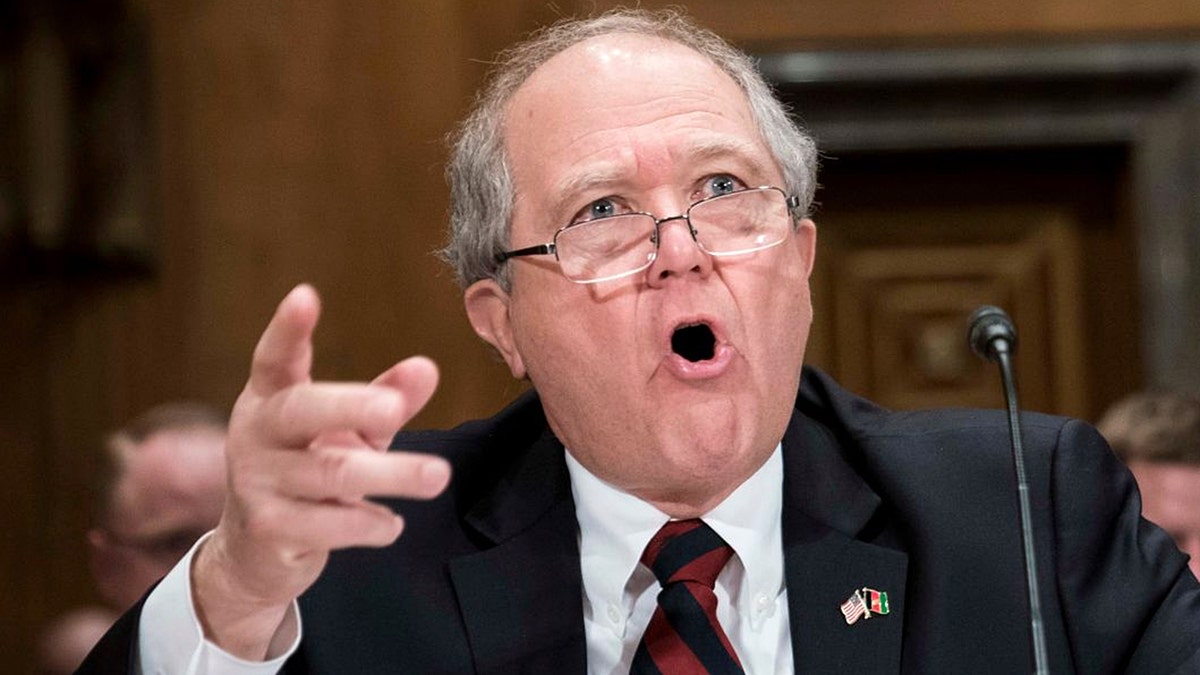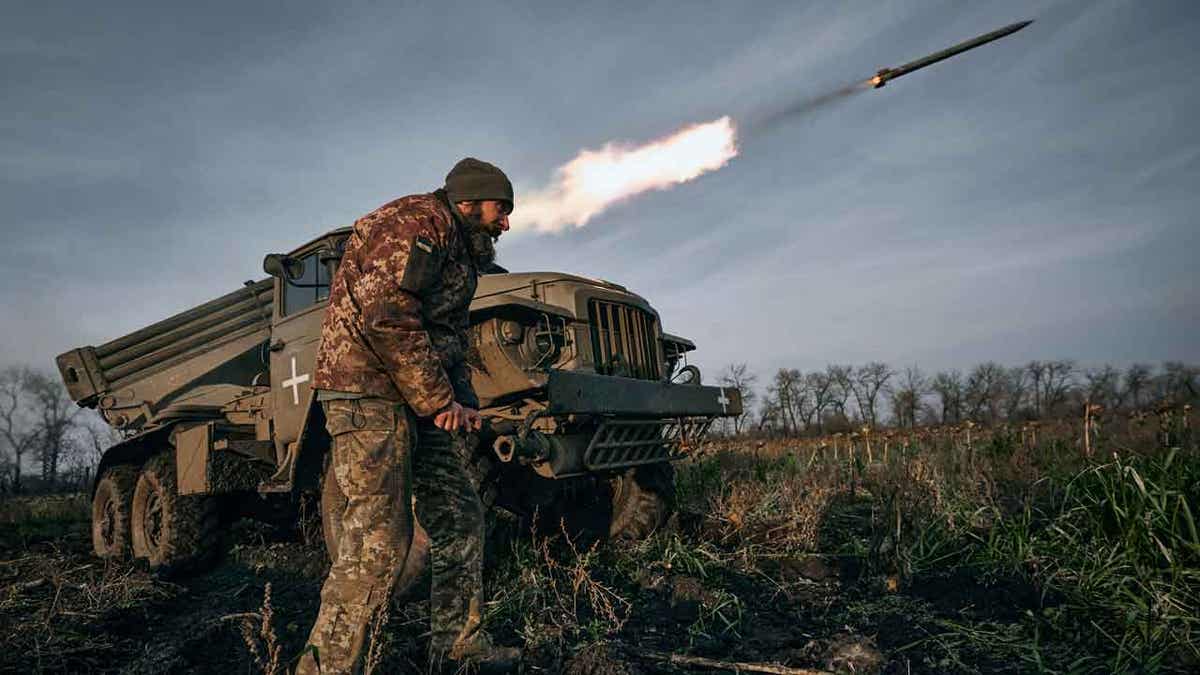Lessons from Afghanistan: Special IG John Sopko calls for greater oversight for Ukraine aid
Though vastly different countries, Afghanistan IG John Sopko says the US should appoint a special inspector to oversee aid to Ukraine as America spends $113 billion helping fend off Russia's attacks
As the U.S. commits to support Ukraine no matter how long it takes, some in government are asking: Did America learn its lessons from Afghanistan?
Ukraine is not Afghanistan, but in terms of how the U.S. approaches aid and oversight of funds, "has that changed?" asked John Sopko, the special inspector general for Afghanistan reconstruction (SIGAR) which tracked billions of dollars of wasted money over the decades-long effort to rebuild that nation.
"We made some significant mistakes in dealing with Afghanistan," he said in an interview with Fox News Digital.
The one-year anniversary of Russia's invasion and Ukraine's defense of its territory came with commitments from President Biden to contribute more than the $113 billion already appropriated for the war, and a near-unanimous chorus of lawmakers promising additional assistance in weapons and money.
"The very worst outcome is that the assistance gets diverted, stolen in such a way that it doesn't accomplish its intended purpose — in this case, providing the Ukrainians with the weapons and the money to win their war against the aggressor, Russia," Sopko told Fox News.

Ukrainian personnel hold a Ukrainian flag as they stand on a Challenger 2 tank during training at Bovington Camp, near Wool in southwestern Britain, February 22, 2023. (REUTERS/Toby Melville)
The question isn't whether money might be lost to fraud or incompetence in Ukraine but what the U.S. can do to prevent it.
"We're spending a heck of a lot of money in that country, and any time you spend that much money in any country, you're bound to get wastage," Sopko said. "You're bound to get corrupt elements of not only the Ukrainian or the host government, but also of U.S. government contractors or other third party contractors to try to steal the money. There's just so much money going in, and it's hard to keep track of."
Sopko's analysis of the situation in Afghanistan in the later stages of the U.S. involvement, before America withdrew all forces in a messy exit, paints a gruesome picture of what could happen when foreign aid is perceived as flowing to corrupt local leaders.
Without sufficient oversight, aid "gets stolen or diverted to local oligarchs or local politicians, or just the average Ukrainian will see the waste," Sopko said. The result would be a loss of "support of the Ukrainian government by the average Ukrainian who's fighting, dying and bleeding at the front. And that's what we saw in Afghanistan. The Afghans saw all the money being diverted by corrupt politicians by their version of oligarchs and so when the Taliban was pushing toward the end, the average Afghan soldier or police officer or bureaucrat just said, 'I'm not gonna die for this government… they're stealing everything.' And we, the donors, the U.S., were identified as supporting the corrupt oligarchs."
FOX NEWS POLL: HALF SAY US SHOULD SUPPORT UKRAINE AS LONG AS IT TAKES
Sopko does not predict Ukraine will become a second Afghanistan — the two countries are vastly different in culture, infrastructure, civil structure and governance. Ukraine's war is a defensive battle against a powerful foe, while Afghanistan was a civil war.
Nevertheless, corruption is not confined to one area of the globe.

U.S. President Joe Biden and Ukraine's President Volodymyr Zelenskyy walk next to Saint Michael’s cathedral, amid Russia's attack on Ukraine, in Kyiv, Ukraine February 20, 2023. (REUTERS/Gleb Garanich )
Ukraine's government in 2023 is better off than the government of a decade ago, which was mired in corruption in part due to pro-Kremlin and holdover Soviet interests.
But how different it is from Afghanistan doesn't weigh into the need for oversight, Sopko said.
"What's similar is that we're spending a heck of a lot of money in that country, and any time you spend that much money in any country, you're bound to get wastage," Sopko said. "You're bound to get corrupt elements of not only the Ukrainian or the host government, but also of U.S. government contractors or other third party contractors to try to steal the money. There's just so much money going in, and it's hard to keep track of."
In order to do oversight properly, Sopko identified several necessary conditions based on his years investigating the U.S. and other nations' investments in Afghanistan. First, there needs to be staff on the ground who speak the language and understand the local power structures in the Ukrainian government.
Another requirement for an effective watchdog is that it should have authority to investigate every agency and every government. Current oversight efforts are "stovepiped" by the department — State Department aid is overseen by State's IG, and doesn't have the authority to track the Pentagon's contributions, which falls under the Department of Defense IG.
"We issued reports up to the collapse of the Afghan government saying that the Department of Defense could not tell us what weapons we had given, and what weapons the Afghans had," Sopko said.
The U.S. has ramped up commitments to send weapons to assist Ukraine in recent months, and several lawmakers have called on the Biden administration to detail plans for oversight.

John F. Sopko, special inspector general for Afghanistan reconstruction, testifies before the Senate Homeland Security and Governmental Affairs Committee in the Dirksen Senate Office Building on February 11, 2020, in Washington, DC. (Sarah Silbiger/Getty Images)
In January, the IGs at the Pentagon, State Department and USAID released a plan for the "Ukraine Oversight Interagency Working Group" to provide real-time oversight over all the equipment, funds and other aid to Ukraine. The oversight involves 17 separate oversight agencies working together — which Sopko quipped would be like "herding cats."
The working group had dozens of reports planned for the coming year and certainly will add more. Already the IGs have identified a weakness, particularly in the Pentagon's security aid: There aren't enough U.S. personnel in Ukraine to track what's happening with the U.S. weapons and equipment sent there.
RUSSIA'S WAR IN UKRAINE HITS ONE-YEAR MARK AS PUTIN DIGS IN, ZELENSKYY PUSHES VICTORY. WHAT’S NEXT?
Congress also has ramped up calls for a special inspector for Ukraine aid. "We have not seen any signs that our budgetary assistance has fallen prey to any kind of corruption in Ukraine,"
Other experts argue the situation in Ukraine is different enough from Afghanistan not to warrant a special inspector. Ukraine has proved it is able to investigate and root out corruption, according to Sarah Hoffman of the Center for Strategic and International Studies. She notes that Ukrainian President Volodymyr Zelenskyy proved he was serious about stamping out corruption by firing several officials last month and that the oversight working group quickly spun up the
"Congress and other Washington-based stakeholders should put their trust in the existing mechanisms in place and let them do their jobs," Hoffman wrote in an opinion column for The Hill this week.
Calls from Congress to reduce or slow funding, Hoffman added, only help the Kremlin.

Ukrainian military's Grad multiple rocket launcher fires rockets at Russian positions in the frontline near Bakhmut, Donetsk region, Ukraine, Thursday, Nov. 24, 2022 (AP Photo/LIBKOS, File)
"We have not seen any signs that our budgetary assistance has fallen prey to any kind of corruption in Ukraine," Defense Department spokesman John Kirby told lawmakers on Jan. 25.
Kirby's statement came one day after reports that Zelenskyy had fired government officials who had "allegedly engaged in bribery, used government vehicles for personal use, and purchased inflated food supplies for Ukrainian forces," Rep. James Comer, chair of the House Oversight Committee, wrote in a letter to the Biden administration demanding more transparency.
CLICK HERE TO GET THE FOX NEWS APP
The call for oversight should be separate from the need for aid, according Sopko, but can't be ignored just because the goal is a noble one. Sopko looks to the example of Harry Truman, who, before running for president, made a name for himself in the Senate by investigating war profiteering in the early years of WWII — perhaps the "most righteous war" America has ever fought, Sopko said.
"We must look and protect the taxpayers' money, no matter how good the cause," he said.















































